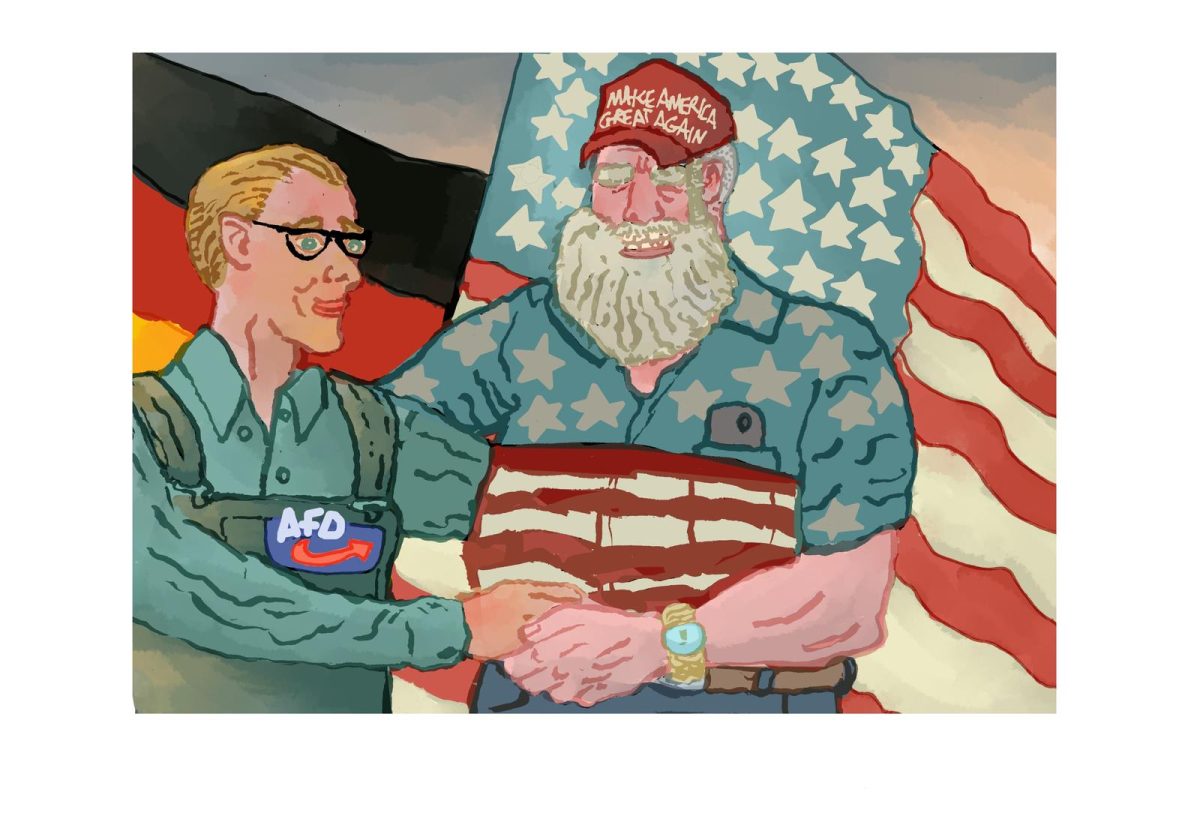Jessica Jewell
daily sundial
A petition on Change.org went viral on the web during the last few weeks, spotlighting bad U.S. agricultural practices. With over 220,000 signatures, the petition demands the U.S. Department of Agriculture to stop buying “pink slime” for public school lunches.
The USDA is buying 7 million pounds of Beef Products Inc. Boneless Lean Beef Trimmings (BLBT) for the National School Lunch Program. The product essentially is a toxic filler that when incorporated into ground beef, brings three cents off per pound.

USA Today described the process:
“The bits are heated to about 100 (degrees) Fahrenheit and spun to remove most of the fat. The lean mix then is compressed into blocks for use in ground meat.”
BLBT is then bathed in ammonia gas – a major point of concern for consumers.
Now, I’m in concordance with upset consumers. I think the stuff is deplorable and it makes my skin crawl to think about it for too long. But I’m peeved with society’s inability to look at the big picture; a corrupt and broken U.S. industrial agricultural system, of which they should rid themselves.
The term “pink slime” is not new, but has been buzzing around the Internet for years. A photo showing what looked to be a disturbing pink sludgey soft-serve a while back, sparked uproar online. The controversial “pink slime” back then referred to mechanically separated chicken used as a staple in processed foods, namely chicken nuggets. According to the USDA Food Safety and Inspection Service, in 1995, “a final rule on mechanically separated poultry said it was safe and could be used without restrictions,” but “it must be labeled as ‘mechanically separated chicken or turkey’ in the product’s ingredients statement.”
One of the big issues people are raising about BLBT is not just that it’s slated to be served at little Johnny’s cafeteria, but that there will not be any distinctive labeling when it’s incorporated into ground beef.
In the past, “pink slime” – connective tissue and “other leavings” of beef gassed with ammonia – was deemed unfit for human consumption, due to the fact that these trimmings were more susceptible to salmonella and E. coli. The product is sold to other companies who mix it into their ground beef to bring down price.

According to The Huffington Post, even fast food giants like McDonald’s, Burger King and Taco Bell recently announced they won’t be using BLBT in their food. The product, sans gassing, has traditionally been used for dog food. “Pink slime” is currently banned in the UK.
The new “pink slime” is just one of countless repulsive practices the public is subject to. People are demanding the elimination of BLBT from school lunches or, at the very least, transparency through labels. However, what Americans should really demand is for the government to cut ties with factory farming. Yes, easier said than done, but what people don’t realize is that putting a band aid or causing a hoopla over one peripheral company’s practices is not a solution.
As it is, the US government gives the green light to the distribution of sub-par foods to the American public with its subsidies to factory farming. Current large-scale agricultural practices are simply toxic and completely unsustainable. At this point, there are few options to avoid eating meats that have unrecognizable additives, gassed with ammonia or are chock-full of hormones and antibiotics. According to the Washington Post, regulations allow 15 percent of ground beef to contain “pink slime” without the label indicating the ammonia. It’s considered a “processing agent,” not an ingredient.
In an interview on the documentary, Food Inc., BPI Founder Eldon Roth said 70 percent of ground beef in the US contains “pink slime,” with hopes of reaching 100 percent in the coming years.
There is mounting evidence that gassing the “pink slime” with ammonia does not make the beef mixture any safer. A 2009 investigative piece published by the New York Times reported contradicting information in terms of BLBT’s safety, “Since 2005, E. coli has been found 3 times and salmonella 48 times, including back-to-back incidents in August in which two 27,000-pound batches were found to be contaminated. The meat was caught before reaching lunch-rooms trays.”
Surely, the corporations are not standing idly by the criticism. In a PR move, BPI launched a website, pinkslimeisamyth.com and are blabbing all over the twitterverse with the hash tag #pinkslimeisamyth to combat the backlash. Even going far enough to put out a press release titled, “Lean Beef Trimmings—High Quality and Safe.”
Last week, Beef Products Inc. spokesman Rich Jochum defended BLBT to The Daily:
“It 1) improves the nutritional profile, 2) increases the safety of the products and 3) meets the budget parameters that allow the school lunch program to feed kids nationwide every day.”
Yes, integrating BLBT into ground beef does make the product cheaper for schools, however, it is absurd to imply that usage of this product “improves the nutritional profile” for children. If by that he means children will eat more “protein” then yes, but it is chemically tainted and full of material previously thought only suitable for animals.
This most recent food scandal, though validly repugnant, should not get thrown out of context and fall prey to sensationalism. During the first “pink slime” buzz, people re-posted photos and articles about the nasty chicken paste. Predictably, peoples’ over-stimulated, information-inundated, media-saturated minds got distracted, and “pink slime” dissipated from public consciousness.
People are completely sedated to the over-arching issue at the heart of this controversy. Maybe it’s because they’re doped up on a cocktail of chemicals slipped into their food — I’ll give them the benefit of the doubt.
The industry needs to be turned on its head. A society can only survive so long on the back of a scorched earth approach; it is naive and idealistic.
Eat locally-sourced foods as much as possible and try to eat as much of a plant-based diet as possible for both its health benefits, but also to stick it to the man (USDA, FDA, Big Ag, Monsanto, Con Agra and friends).





